Wildcards Understanding and Using for Hacking

Wildcards, I would like to highlight the use of Wildcards, because they are incredibly important, especially for “hacking-related and some programming” stuff. In this article I will cover one interesting old-school Unix hacking technique, that will still work nowadays in 2020.
In real-world attacks, arbitrary shell options and or arguments could be hidden among regular files, and not so easily spotted by the administrator. Same in case of cron jobs, shell scripts or web applications that calls shell commands.
Since for many people this would be an Abracadabra article, I would try to keep it as simple as possible with the help of some examples. “Jip and Janneke” language. (The latter is a Dutch pronunciation), which means to explain it as simple as possible so that “almost” everyone understands it.

This article has been on the shelf for a while, actually for almost half a year, as you might see from the date on the pictures. The reason for this is because I find it quite difficult to write about this. I sincerely hope that this article is helpful.
How can I use the wildcards?
Use your imagination……
Have some wildcards fun
Do you know you’re have a secret weapon in your pocket, it’s called “wildcard”.
/???/??t /???/??ss??
With this command, I can read your password file 😃

Some Shell Wildcards
? The question mark matches any single character.
* An asterisk matches any number of characters in a filename, including none.
[ ] Brackets enclose a set of characters, any one of which may match a single character at that position.
- A hyphen used within [ ] denotes a range of characters.
~ A tilde at the beginning of a word expands to the name of your home directory. If you append another user’s login name to the character, it refers to that user’s home directory.
Basic example of wildcards usage
List all files with the Python extension
|
|
Delete all Python files “rm = remove”
(Warning, if you are using this command, do it on a test machine, or make sure you know what you are doing).
|
|
List all files whose name is beginning with string ‘test’ and has exactly
one additional character
|
|
If you look at these examples above, I don’t think I need to explain to you what options you can use with this as well. Use your imagination.
Information on wildcards
There are lots of bash syntaxes that makes you be able to execute system commands just using the forward-slash “/”, the question mark “?”, numbers, and letters. You can even enumerate files and get their content.
Wildcards: For information on wildcards is the follow command
|
|
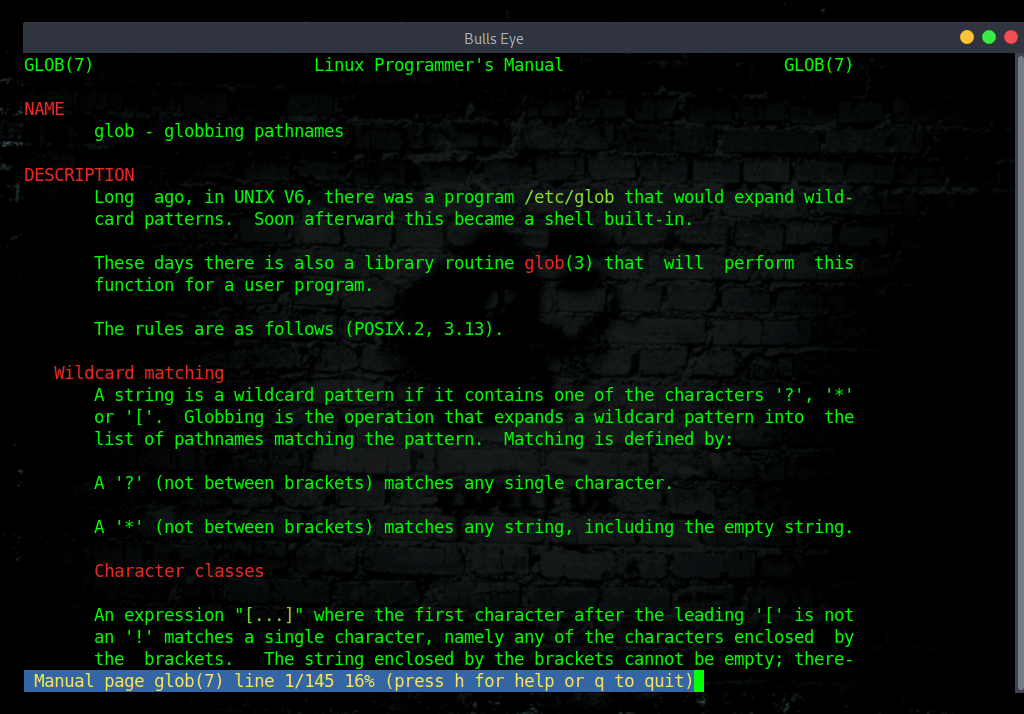
Instead of executing the ls command, you can use the following:
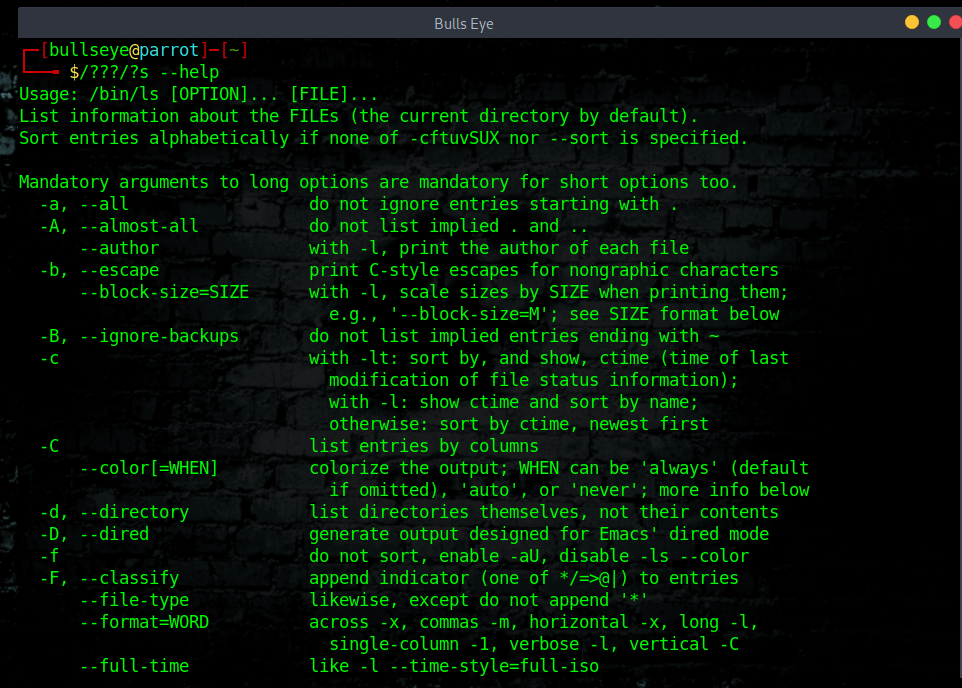
The question mark wildcard represents only one character which can be any character. This in case you know a part of a filename but not one letter, then you could use this wildcard.
For example ls *.?? would list all files in the directory that have an extension of 2 characters in length.
So files with the extensions like .py would be listed.

For example ls *.??? would list all files in the directory that have an extension of 3 characters in length.

Thus files having extensions such as .png , .pdf , .txt would be listed.
Wildcards /???/??t /???/p??s??
Read your password file
As you can see in the screenshot, there’re 3 errors “/bin/cat *: Is a directory”. This happens because /???/??t can be “translated” to /bin/cat but also /dev/net or /etc/apt , etc…

|
|
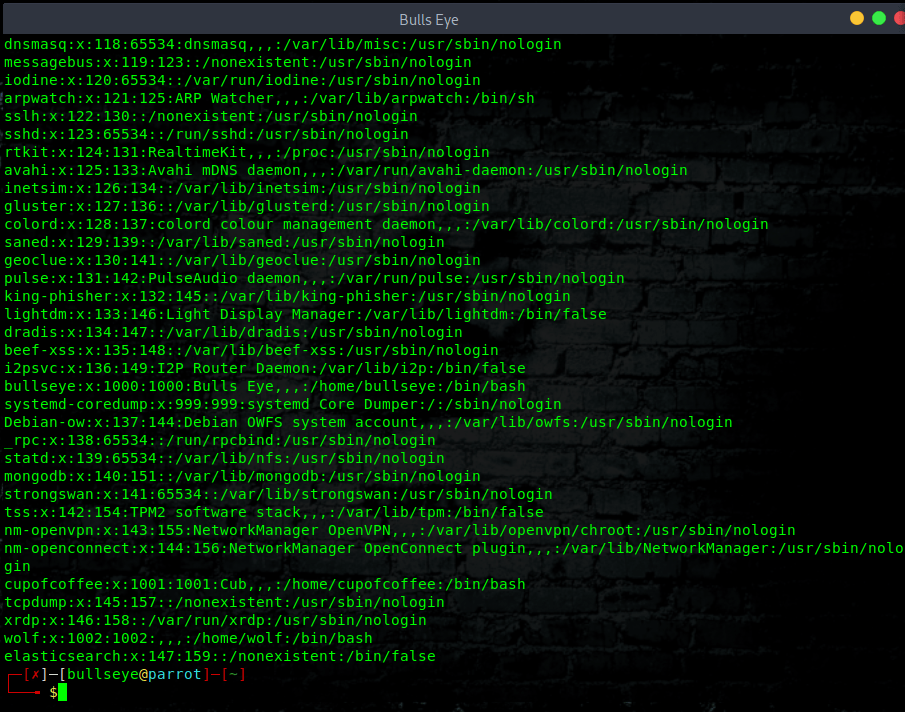
Why do I use The “?”
Instead of “*"
Because the asterisk (*) is widely used for comment syntax
(something like / * I’m a comment * /) and WAF blocks it in order to avoid SQL Injection.
Enumerate files and directories using echo
Install http
|
|
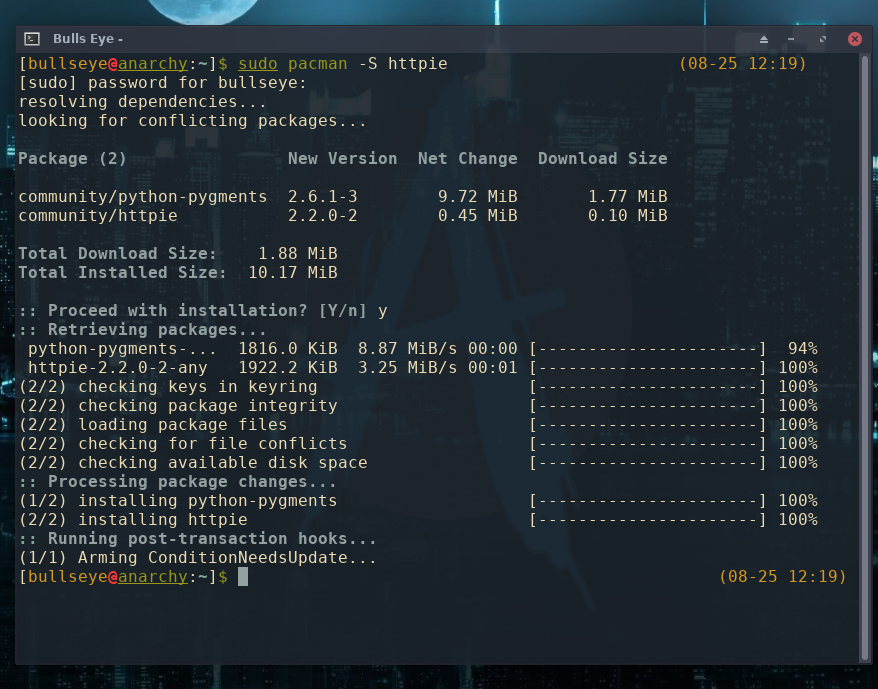
In this image I am using Anarchy Linux
The echo command could enumerate files and directories on a file system using a wildcard. For example:
|
|
|
|
linux kernel rce vulnerability (Remote Code-Execution)
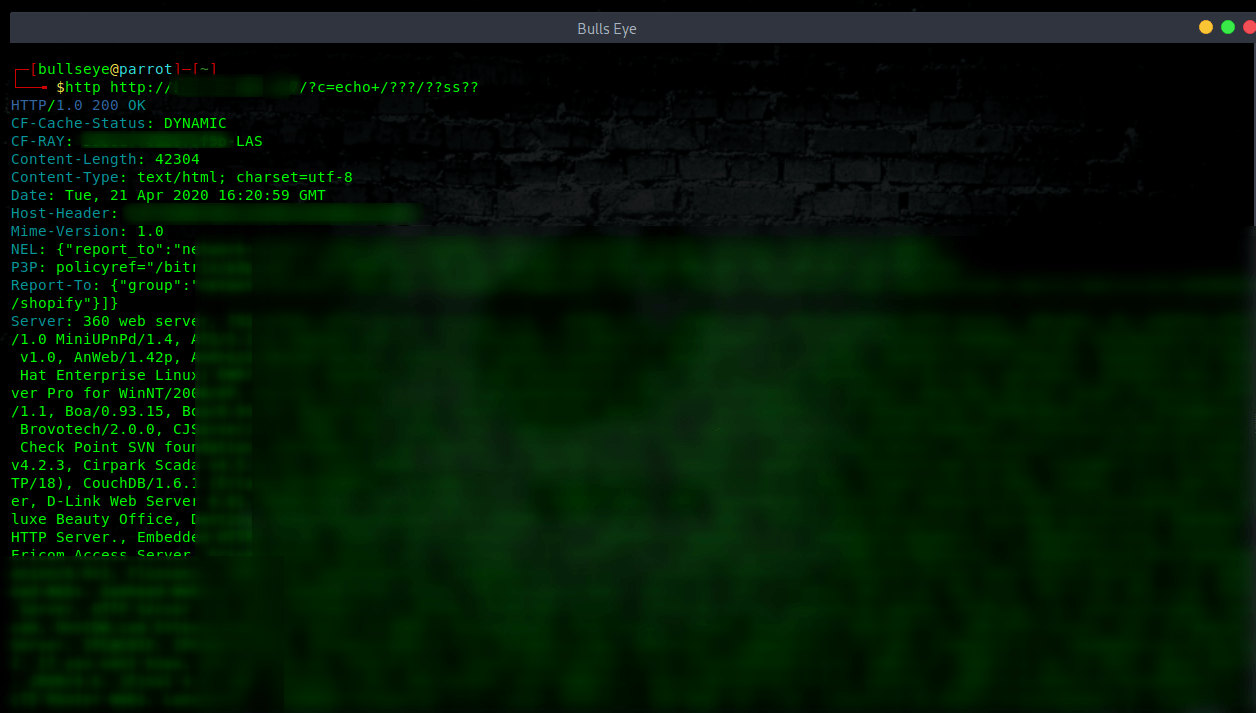
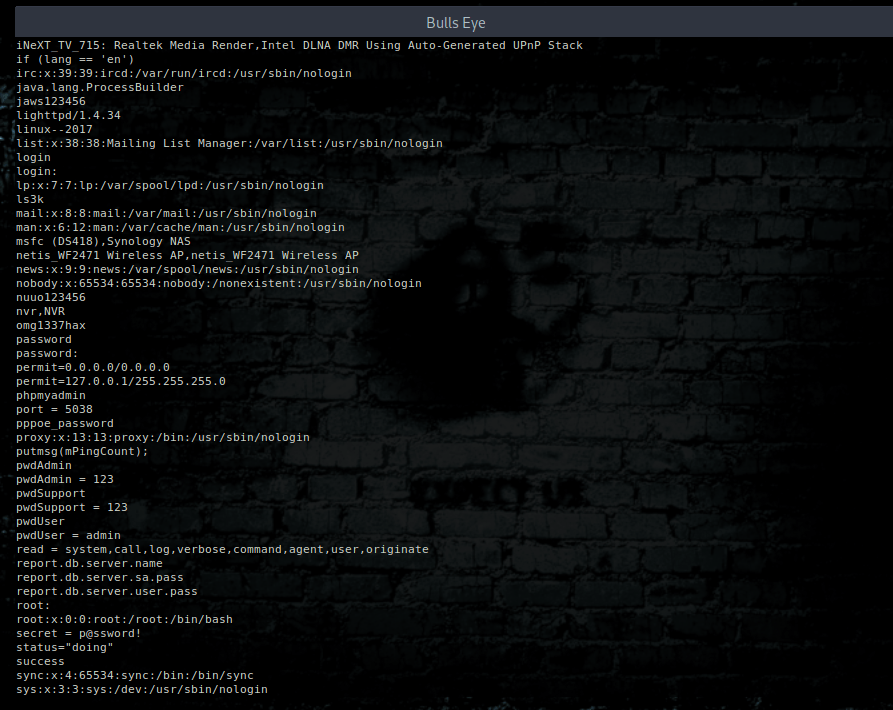
Netstat Wildcard
Netstat uses a asterisk * as a wildcard which means “any”. An example would be
Example output:
|
|
Under “Local Address” *, in *:smtp, means the process is listening on all of the networks interfaces the machine has for the port mapped as SMTP (see /etc/services for service resolution). This can also be shown as 0.0.0.0. The first *, in *:*, means connections can come from any IP address, and the second *, in :, means the connection can originate from any port on the remote machine.
Chmod file reference trick
A interesting attack is ‘chmod’. Chmod also has –reference option that can be abused to specify arbitrary permissions on files selected with asterisk wildcard.
Chmod manual page (man chmod)
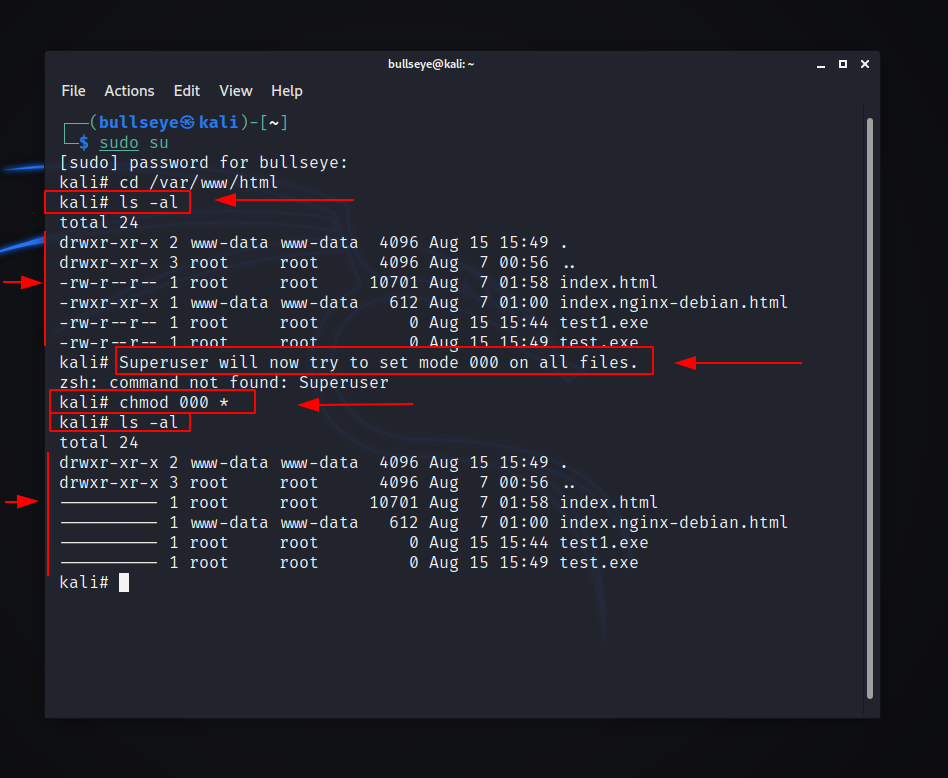
What is happened? Instead of 000, all files are now set to mode 777 because of the ‘–reference’ option supplied through file name.
Beside just –reference option, attacker can also create another file with ‘-R’ filename, to change file permissions on files in all subdirectories recursively.
In the future I would certainly supplement this article, because there is so much to say and write about this.
Become a member on Odysee.com
Earning on Odysee for watching videos ♥️
Here an invitation link, so that we both benefit.
In this way, you also support my work.
https://odysee.com/$/invite/@hackingpassion:9
WANT TO SUPPORT THE WEBSITE
Dear people, I do a lot of things on the Internet and I do it all for free. If I don’t get enough to support myself, it becomes very difficult to maintain my web presence, which takes a lot of time, and the server costs also have to be paid. Your support is greatly appreciated.
Thanks guys ..!
https://paypal.me/hackingpassion
Use the link above to donate via PayPal.
IMPORTANT THINGS TO REMEMBER
✓ This Video and Article is made for educational purposes and pentest only.
✓ You will not misuse the information to gain unauthorized access.
✓ This information shall only be used to expand knowledge and not for causing malicious or damaging attacks…!
Read also the Disclaimer
All the techniques provided in the tutorials on HackingPassion.com, are meant for educational purposes only.
If you are using any of those techniques for illegal purposes, HackingPassion.com can’t be held responsible for possible lawful consequences.
My goal is to educate people and increase awareness by exposing methods used by real black-hat hackers and show how to secure systems from these hackers.